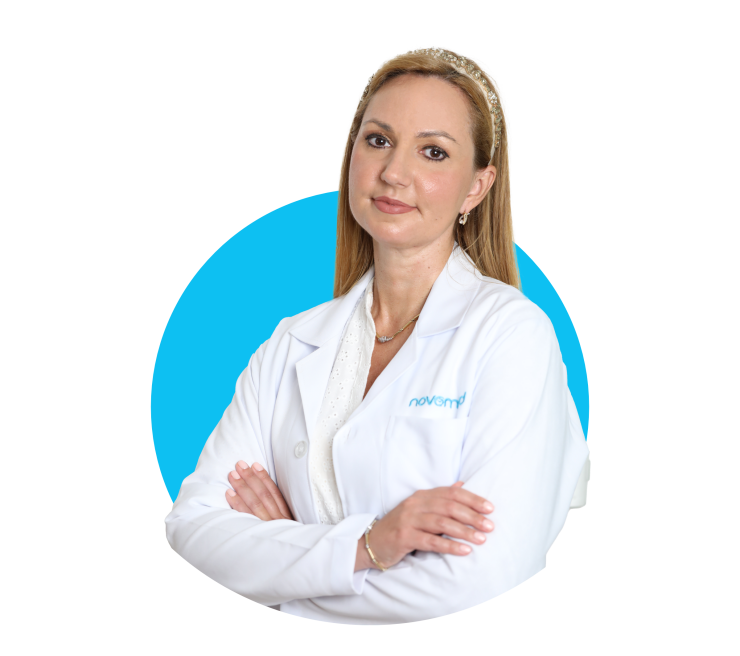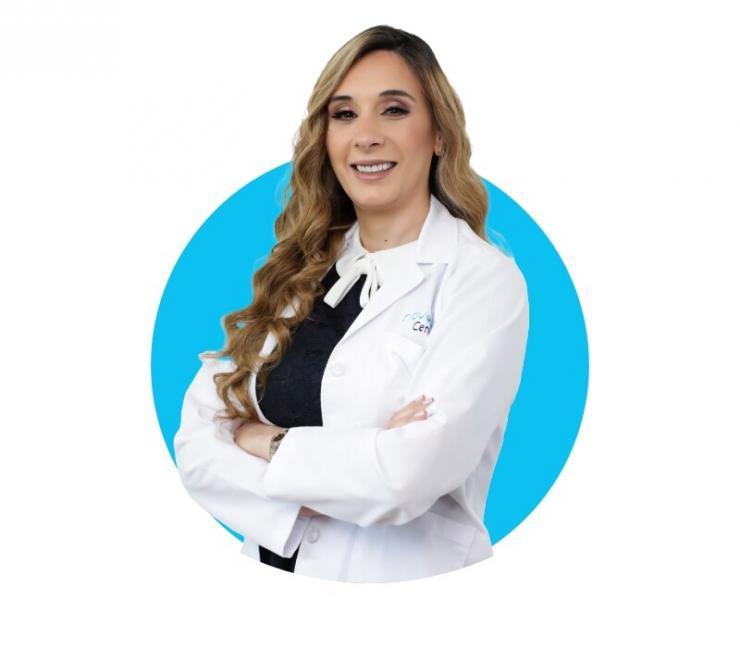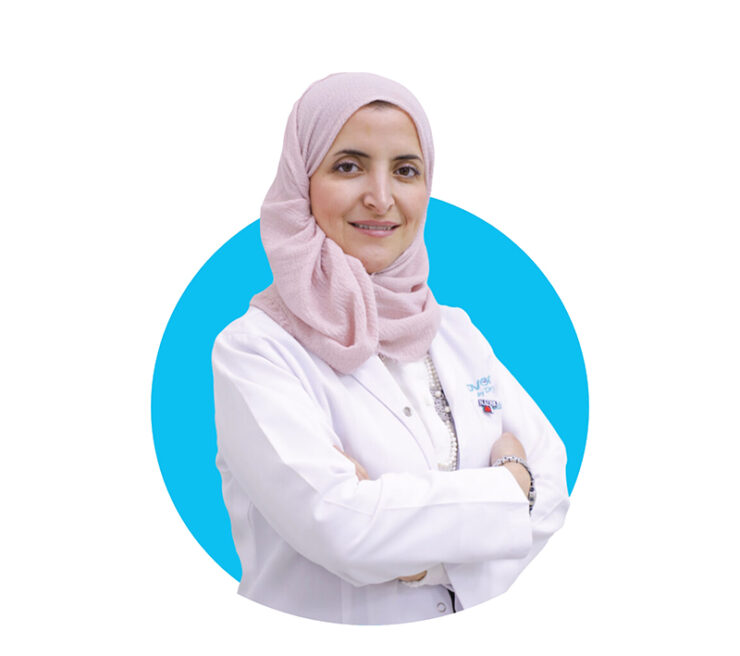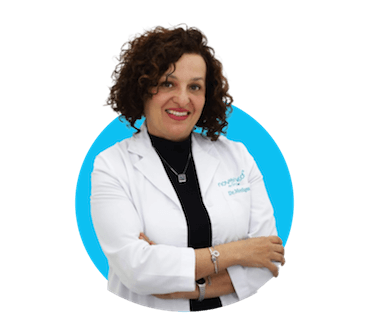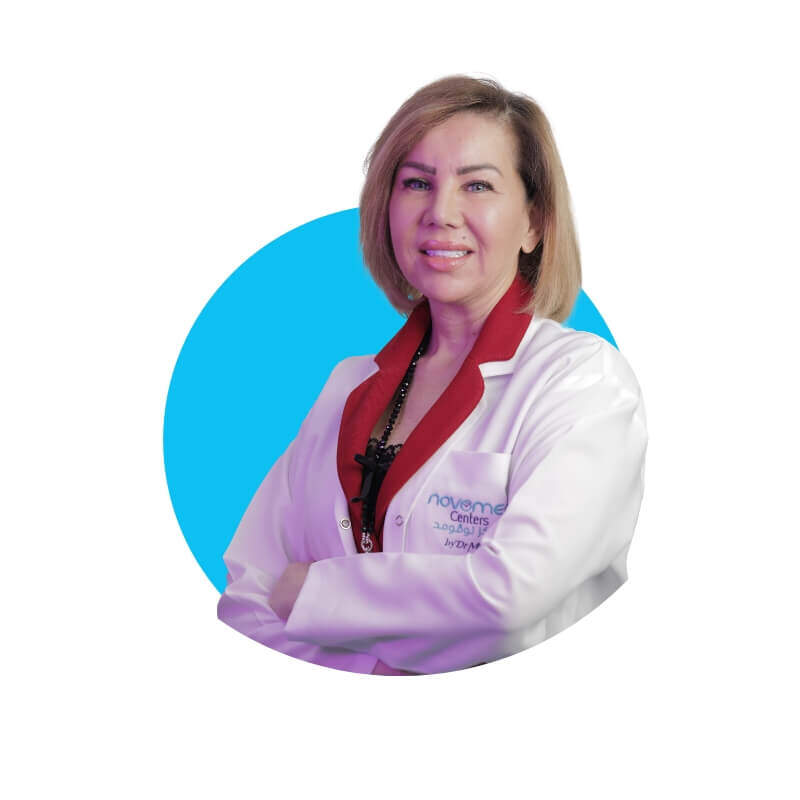Endometriosis Treatment in Dubai, Abu Dhabi and Al Ain
Endometriosis is a painful disorder that is often caused when tissue similar to the tissue that lines the uterus from the inside – the endometrium – grow outside the uterus. The most common endometriosis includes the ovaries, fallopian tubes, and pelvic lining tissue. Endometriosis rarely grows outside the pelvic organs.
With endometriosis, the endometrial-like tissue works like normal tissue — as it thickens, breaks down, and bleeds with each menstrual cycle. But because this tissue cannot exit your body, it becomes trapped. When endometriosis affects the ovaries, cysts known as endometriomas may form. The surrounding tissues may become irritated, eventually leading to the appearance of scar tissue and adhesions – abnormal ligaments of fibrous tissue that can cause blockages in the pelvic tissues and organs.
Symptoms
The primary symptom of endometriosis is pelvic pain, often associated with menstrual periods. Although many women experience cramping during menstrual periods, those with endometriosis describe menstrual pain as much worse than usual. Pain may also increase over time.
Common signs and symptoms of endometriosis include:
Common signs and symptoms of endometriosis include:
Pelvic pain and cramping may begin before the menstrual period and last for several days after its onset. You may also feel lower back and stomach pain.
Pain during or after sex is common with endometriosis.
You are more likely to experience these symptoms during your menstrual period.
You may experience heavy menstrual periods from time to time or bleeding between menstrual periods (intermenstrual bleeding).
Sometimes endometriosis is diagnosed for the first time in people looking for an infertility treatment.
You may experience fatigue, diarrhea, constipation, bloating or nausea, especially during menstrual periods.
Causes
Although the exact cause of endometriosis is not certain, possible explanations include:
In the case of menstruation, the menstrual blood that contains the cells of the endometrium flows through the fallopian tubes to the pelvic cavity instead of leaving the body. These endometriosis cells attach to the wall of the pelvic cavity and the surfaces of the pelvic cavity, where they grow and continue to acquire thickness and bleed throughout each menstrual cycle.
In what is known as “induction theory,” experts suggest that hormones or immune factors promote the conversion of peritoneal cells – cells that line the inner side of the abdomen – into cells that resemble the cells of the endometrium
Hormones such as estrogen may convert embryonic cells – cells in the early stages of development – into endometrial cell implants during puberty.
After a surgery, such as a hysterectomy or a cesarean section, endometrial cells may stick to the surgical incision
Blood vessels or lymph tissue fluid can transfer the endometrium cells to other parts of the body.
A problem with the immune system may cause the body to be unable to recognize and destroy endometrial tissue that is growing outside the uterus.
Risk factors
There are several factors that make you more likely to develop endometriosis, such as:
- Never having children
- If your period started at a young age
- If your menopause started at an older age
- Short menstrual cycles – for example less than 27 days
- Heavy menstrual periods that lasts longer than 7 days
- Low BMI
- Any conditions that hinder the normal flow of menstruation out of the body
- Abnormalities in the reproductive system
To book an appointment or for more information about Endometriosis Treatment, call us toll-free on 800 (NOVO) 6686 or click the live chat icon at the bottom of the screen.

